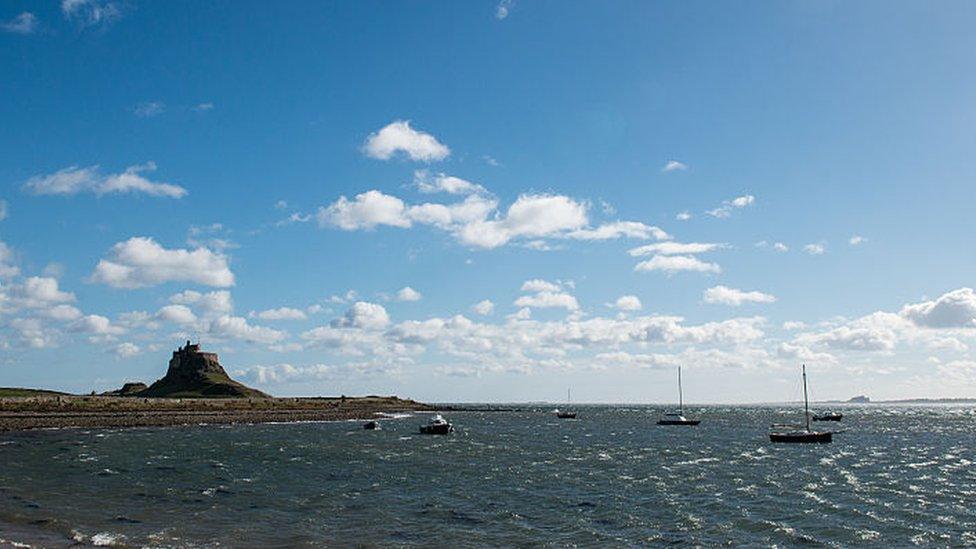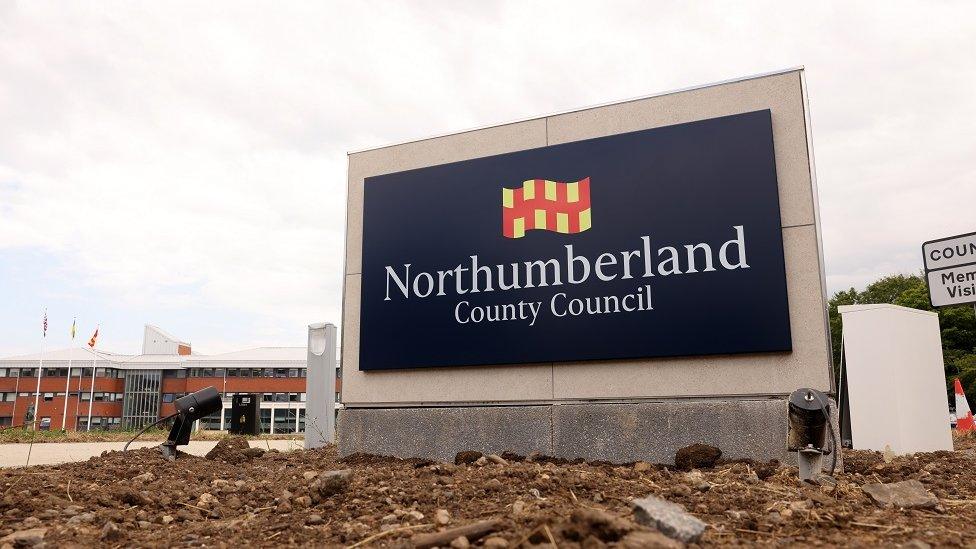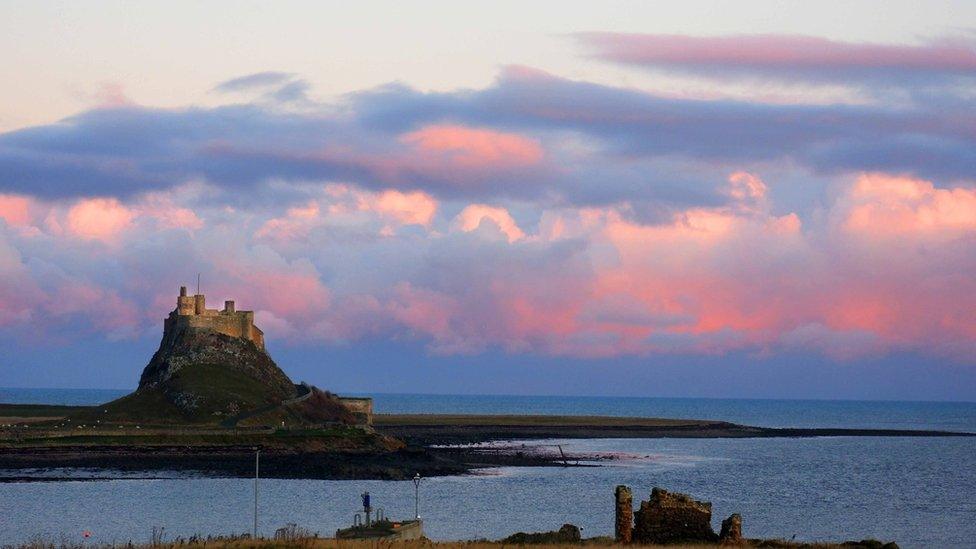Holy Island fishing ban would turn island 'into a museum'
- Published

Opponents of the proposal fear it will have a significant impact on Holy Island life
A fishing ban at Holy Island has been opposed by councillors, with claims by one it would turn it "into a museum".
The government is exploring creating a Highly Protected Marine Area (HPMA) which would see commercial and recreational fishing halted.
Conservative-led Northumberland County Council heard this week such a move would "devastate" the local economy.
The Department for Environment, Food and Rural Affairs (Defra) said it wanted to support the fishing industry.
'Switch the lights off'
Councillor Colin Hardy, who represents Norham and Islandshires, told the meeting a ban would lead to the loss of six fishing boats - "the equivalent of six farms on the mainland".
He said: "It will devastate the island's economy. It will make it unaffordable. If we lose the fisherman, we lose the school, we lose the heart of the island.
"We become a museum, like Beamish. The last person across the causeway, switch the lights off.
"The fisherman of Holy Island don't trawl. They don't dredge the seas. They feed a local industry, they feed a local community and they feed our county."
Interim chief executive Rick O'Farrell claimed Defra's own documents acknowledged a loss to the economy of between £600,000 and £9m, the Local Democracy Reporting Service said.
'Incredible biodiversity'
A majority of councillors supported a motion to oppose the HPMA plan, although the council's two Green representatives did not, with councillor Martin Swinbank, of Alnwick, saying the authority should not dismiss the proposal without more evidence.
A Defra spokesman said Lindisfarne was being considered as a potential HPMA "because of its incredible biodiversity".
He added: "It is home to over 850 species, 40 of which are identified as threatened and important, as well as valuable blue carbon habitats.
"As part of our consultation, we have listened to the views of the local community, fishermen, environmental groups and others with a view on these really important issues. These will be taken on board before any decisions are made."

Follow BBC North East & Cumbria on Twitter, external, Facebook, external and Instagram, external. Send your story ideas to northeastandcumbria@bbc.co.uk, external.
- Published16 September 2022

- Published20 August 2022
